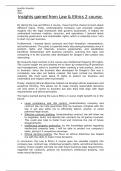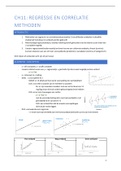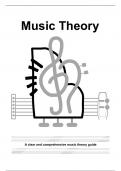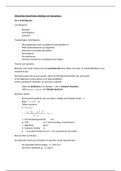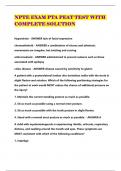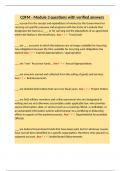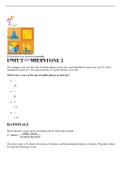LECTURE NR1
Types of data:
• Categorical (qualitative)
o Verbal label
→ Vehicle type (car, truck, SUV)
→ Gender (female, male)
o Coded
→ Vehicle type (1, 2, 3)
→ Gender (0, 1)
• Numerical (quantitative)
o Discrete
→ Broken eggs in a carton (1, 2, 3, …, 12)
→ Annual dental visits (0,1 ,2, 3,…,)
o Continuous
→ Patient waiting time (14.27 minutes)
→ Customer satisfaction (85.2%)
Measurement levels:
• Nominal data
o Qualitative data-only counting allowed (frequency of occurrence)
o Example: Forms of business for federal tax purposes
→ Sole proprietor (1040 C)
→ Corporation (1120)
→ Partnership (1065)
→ S-Corporation (1120 S)
→ Trust (1041)
→ Nonprofit organization (990)
• Ordinal data
o Counting and order statistics allowed (rank order)
o Example: Moody’s bond ratings
→ Aaa
→ Aa
→A
→ Baa
→ Ba
→Caa-C
• Interval data
o Sums and differences allowed (e.g., mean, standard deviation)
o Example: Likert scale
→ Rate your dorm food
→ Very poor 1 2 3 4 5 very good
• Ration Data
o Any math operations allowed (e.g., mean, standard deviation, ratios, logs)
o Example: Annual dental visits 0, 1, 2, 3…
Important concept: Population vs sample
• Population: is the collection of all data points:
Typically we do *not* have it!
• Sample: is a subset of data taken from the population
o We use this sample to infer something about the population:
, o E.g., is there sufficient support for increasing expat subsidies under low income residents
LECTURE NR 2
Sample space
• In our example population, the sample space for student income is the set of all its 4 possible
outcomes:
(360, 500, 650, 810)
• Also in our example, the sample space for mean income of a random sample of 2 students is the
set of all its 6 possible outcomes:
( 430, 505, 575, 585, 655, 730 )
PROBABILITY
• Probability: P(A) the probability of event A
o Example: the probability of a web visitor buying product is 33%
(event A=a web visitor buying your product, and P(A)= 0.33)
𝑃(𝐴) 1−𝑃(𝐴)
• Odds for A: 1−𝑃(𝐴) ; odds against A: 𝑃(𝐴)
• Notation
• Key concepts and laws of probabilities
, Bayes theorem, independence condition, permutation, combination, factorial
Probability P: likelihood of a particular outcome
1
• Coin: P(heads) = 2
1
• Dice: P(outcome = 3) = 6
Types of probability
𝑛𝑢𝑚𝑏𝑒𝑟 𝑜𝑓 𝑒𝑙𝑒𝑚𝑒𝑛𝑡𝑎𝑟𝑦 𝑜𝑢𝑡𝑐𝑜𝑚𝑒𝑠 𝑖𝑛 𝑒𝑣𝑒𝑛𝑡
• Classical (as above): P(event) = 𝑛𝑢𝑚𝑏𝑒𝑟 𝑜𝑓 𝑝𝑜𝑠𝑠𝑖𝑏𝑙𝑒 𝑒𝑙𝑒𝑚𝑒𝑛𝑡𝑎𝑟𝑦 𝑜𝑢𝑡𝑐𝑜𝑚𝑒𝑠
(for equal probability of elementary outcomes)
Probability theory
, Probability theory
• The complement of an event A is denoted by A’ (1-A) and consists of everything in the sample
space S except event A
• Since A and A’ have no overlap and together comprise the entire sample space S, P(A) + P(A’) = 1
or P(A’) = 1 – P(A)
• The empty set denoted as ∅ contains no elements: P (∅) = 0
The general law of addition:


